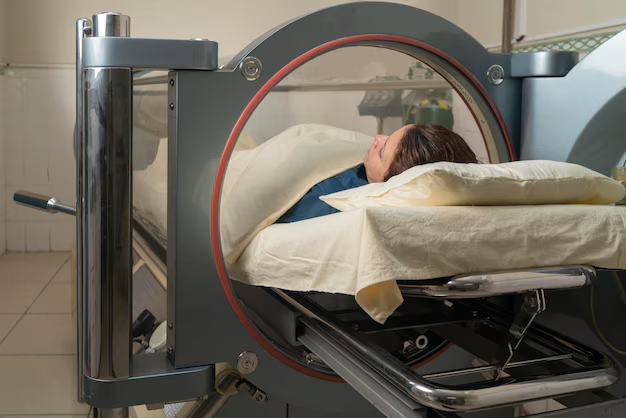Your Guide to Can You See Dementia On An Mri
What You Get:
Free Guide
Free, helpful information about Dementia FAQ and related Can You See Dementia On An Mri topics.
Helpful Information
Get clear and easy-to-understand details about Can You See Dementia On An Mri topics and resources.
Personalized Offers
Answer a few optional questions to receive offers or information related to Dementia FAQ. The survey is optional and not required to access your free guide.
Understanding Dementia and MRI: What Can You Really See?
Dementia can be a daunting and complex condition to understand, often shrouded in confusion and uncertainty. As a brain disorder that affects memory, thinking, and social abilities, it significantly impacts an individual's daily life. One common question is whether dementia can be diagnosed using MRI (Magnetic Resonance Imaging) scans. In this exploration, we'll dive into how MRI relates to dementia, what it can reveal, and the broader context of diagnosing this challenging condition.
What is Dementia?
Dementia is an umbrella term used to describe a range of neurological conditions that affect cognition, memory, and behavior. It isn't a single disease but a collection of symptoms resulting from various diseases, with Alzheimer's disease being the most common cause. Dementia symptoms progress over time, starting with mild memory loss and confusion, eventually leading to significant cognitive decline.
Types of Dementia
Understanding the types of dementia is essential, as each manifests uniquely:
- Alzheimer's Disease: The most prevalent form, characterized by memory loss, language problems, and erratic behaviors.
- Vascular Dementia: Caused by reduced blood flow to the brain, often post-stroke.
- Lewy Body Dementia: Features sleep disturbances, visual hallucinations, and Parkinsonism.
- Frontotemporal Dementia: Affects personality, behavior, and language due to degeneration in frontal and temporal lobes.
Each type requires a nuanced approach to diagnosis and management.
Can You Diagnose Dementia with an MRI?
When it comes to diagnosing dementia, one of the most frequently asked questions is whether an MRI scan can provide clear answers. Here, we explore the role of MRIs in understanding dementia.
How MRI Works for Diagnosing Brain Conditions
Magnetic Resonance Imaging is a non-invasive imaging technology that produces detailed images of the body's internal structures using powerful magnetic fields and radio waves. In the context of neurological conditions, MRI is invaluable for visualizing the brain's anatomy and identifying abnormalities.
What MRI Can Show for Dementia
MRI scans can reveal:
- Brain Atrophy: Shrinkage in specific brain regions is a hallmark sign of Alzheimer's.
- Vascular Damage: MRI can identify changes associated with vascular dementia, such as infarcts (small strokes).
- Structural Changes: It provides insights into structural abnormalities related to other forms of dementia.
Limitations of MRI in Dementia Diagnosis
While MRI offers incredible insights, it has limitations:
- Non-Specific Findings: Atrophy and other changes can be caused by various conditions, not just dementia.
- Early Stages: In the initial stages, changes might not be evident.
- Overlapping Symptoms: MRI cannot differentiate dementia types conclusively.
Complementary Tools in Dementia Diagnosis
Given its limitations, MRI is often used in conjunction with other diagnostic tools for a comprehensive assessment.
Cognitive Testing
Standard cognitive tests, like the Mini-Mental State Examination (MMSE) or the Montreal Cognitive Assessment (MoCA), assess different cognitive functions and provide a clinical picture that imaging alone can't offer.
Blood Tests
Routine blood work can rule out other potential causes of symptoms such as vitamin deficiencies or hormone imbalances, contributing to a more accurate diagnosis.
Neurological Exams
Thorough neurological evaluations help assess motor function, sensory responses, and reflexes, aiding in the differentiation of dementia from other neurological conditions.
Why Early Diagnosis Matters
Early detection of dementia provides significant benefits, including planning for care, slowing progression through lifestyle modifications, and exploring medical treatments that might delay symptoms.
Practical Steps After a Diagnosis
Once diagnosed, families can take practical steps to prepare for the future:
- Care Planning: Engaging in discussions about care preferences and legal matters early on is crucial.
- Support Networks: Building a strong support network of friends, family, and care professionals can provide essential emotional and practical aid.
- Lifestyle Modifications: Diet, exercise, and mental engagement play a role in slowing disease progression.
Key Takeaways: Seeing Dementia Through MRI
Here’s a concise look at how MRI relates to dementia:
- 🧠 MRI Role: Useful for identifying brain atrophy and structural changes.
- ⚠️ Limitations: Does not conclusively diagnose dementia; must be paired with cognitive tests and other assessments.
- 🔍 Complementary Tools: Cognitive testing, blood tests, and neurological exams enhance diagnostic accuracy.
- 📅 Early Diagnosis: Crucial for effective planning and management.
MRI is a powerful ally in the diagnostic process for dementia, providing detailed images of the brain that complement other diagnostic methods. While it alone may not offer a definitive diagnosis, in conjunction with clinical evaluations, cognitive assessments, and other tools, it plays an essential role in thoroughly understanding each unique case.
Understanding dementia's impact and the tools available for its diagnosis empower individuals and families to navigate the challenges of this condition more effectively. Through awareness and early intervention, those affected can access resources and plan for the future with a clearer perspective.
What You Get:
Free Dementia FAQ Guide
Free, helpful information about Can You See Dementia On An Mri and related resources.

Helpful Information
Get clear, easy-to-understand details about Can You See Dementia On An Mri topics.

Optional Personalized Offers
Answer a few optional questions to see offers or information related to Dementia FAQ. Participation is not required to get your free guide.


Discover More
- Are Dementia And Alzheimer's The Same Thing
- Are Dementia Patients Insulin Resistant
- Can a Dog Get Dementia
- Can a Np Diagnose Dementia
- Can a Nursing Facility Diagnose Dementia Patients In California
- Can a Person With Dementia Divorce Their Spouse In California
- Can a Stroke Cause Dementia
- Can Adhd Turn Into Dementia
- Can Alcohol Abuse Cause Dementia
- Can Alcohol Cause Dementia
